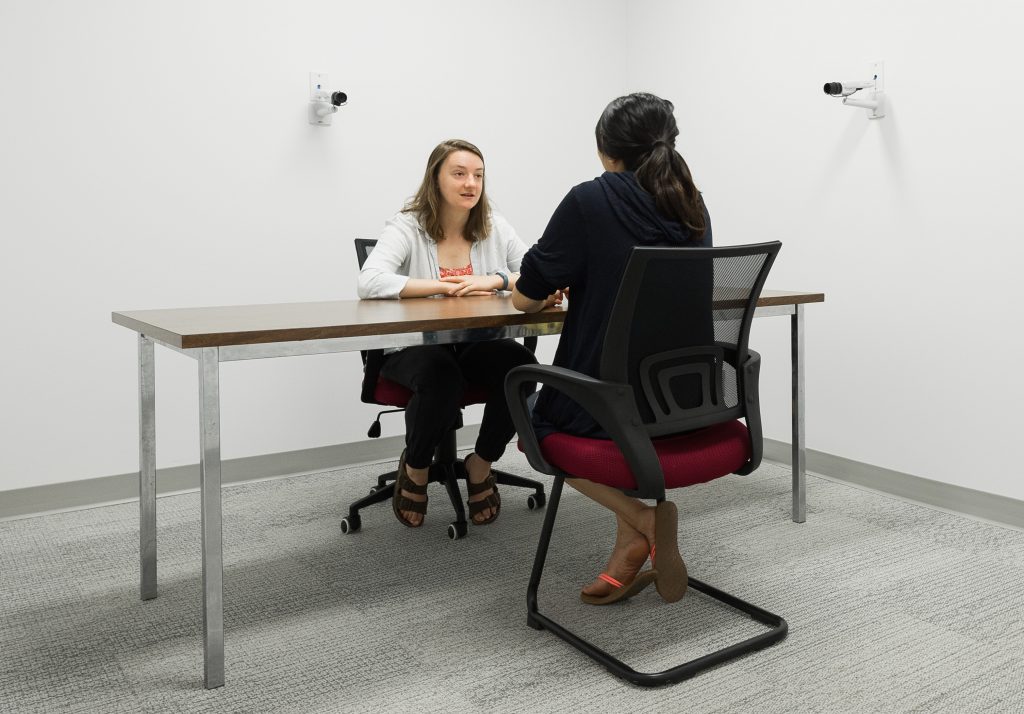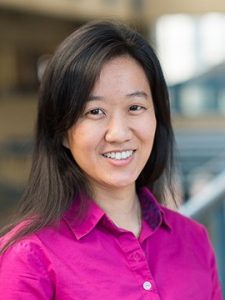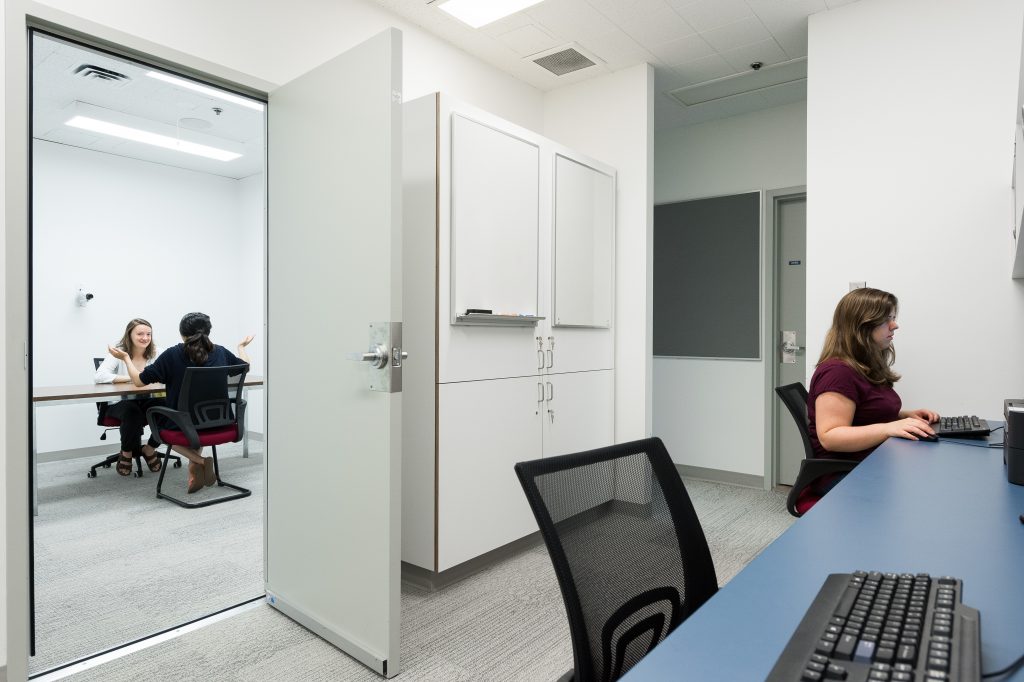

Photo credit: Don Erhardt
Have you ever been curious about how your friendships might affect your hormone levels and overall wellbeing? What about the ways in which those same hormones influence the way you behave in a romantic relationship? If questions such as these grab your attention, you may be interested in the research being conducted at Dr. Frances Chen’s Social Health Lab.


Dr. Frances Chen
As her lab name suggests, Dr. Chen’s research dances on the border between social and health psychology. Over the past two years, the SHL, as it’s known colloquially among its members, has been delving into a ton of innovative research questions with big implications. Dr. Chen and her quickly growing yet tight-knit team of graduate and undergraduate students have facilitated studies on first year students’ social integration and related health outcomes, pioneered research on the little-studied topic of receptiveness, examined the effects of scent on stress levels, and explored the ways in which stress affects social bonding. Whether you’re a health nut or you’re passionate about exploring the complexities of social and romantic relationships, Dr. Chen and her collaborators have likely already done some research that you’ll find both surprising and thought-provoking. Not only that, but her projects are about to get a little bigger in scope and a lot sleeker in technology thanks to some recent developments.
This summer, Dr. Chen and UBC Project Services undertook a two-month long lab renovation project funded by the Canada Foundation for Innovation (CFI) and the British Columbia Knowledge Development Fund (BCKDF). After a brief period of closure so that the renovations could be completed, the space is now up and running again, and for Dr. Chen, it’s a dream lab come true.


Photo credit: Don Erhardt
“The lab is beautiful, modern, and – most importantly – it’s perfectly set up to run the kind of studies I’ve been envisioning since arriving here at UBC,” she says. “I’m interested in how strangers become friends, and how friends handle stress and conflict – what do those processes look like, as they happen?”
Dr. Chen’s research is unique, even among the work of other social psychologists, in that it is not primarily focused on one or two specific aspects of human social experience. “I study both psychological and physiological aspects of these processes,” she explains. “For example, how people’s prior beliefs about friendships influence their behaviour, and how the functioning of the oxytocin system influences social interaction”.
Luckily, the SHL is now well-equipped to examine these nuanced topics from a number of different perspectives – literally. Those who criticize psychology as lacking in scientific or quantitative clout would be well-advised to eat their words upon viewing the renovated space, now home to a cutting-edge integrated audiovisual system that includes six cameras, twelve computeres, two remote eyetrackers, and coding software that Dr. Chen says will allow lab members to “analyze patterns of behaviour unfolding in real time”. She plans to collect a wide array of physiological data, including heart rate, blood pressure, genetic, and hormonal information such as cortisol and testosterone levels. This, she says, will “help to clarify how our bodies react to different kinds of social interactions, ranging from conflictual to supportive, and how these interactions might affect our health”.


Photo credit: Don Erhardt
Despite the inevitable excitement of a freshly renovated lab, Dr. Chen says that her favourite part of her job is not technological, but – fittingly – social. “The most important part of a lab is the people working
in it,” she says. “I’ve already gotten to work with so many incredible students who have each brought different interests and talents into the lab since it opened in 2013.”
She’s right: there’s no denying that the SHL is packed with talented minds, and the proof is in the long list of accomplishments and accolades – from grants and awards to poster competition wins – that the lab’s members have racked up in just two short years. After all, when your research is as wide-reaching and multifaceted as the SHL’s is, you’re bound to get some remarkable people involved – and none less so than Dr. Chen herself.
Recently graduated lab manager Sarah Cheung agrees. “Working with Dr. Chen has been such a rewarding experience. The lab has become my second family.”
-Katie Coopersmith


